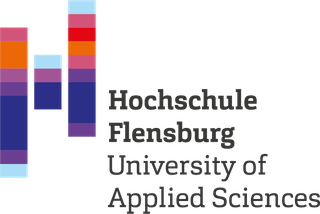Publikationen
- Chateaureynaud, M.-A. (Hrsg.). (2022). LSP Teacher Training Summer School . The TRAILs project. Champs Didactiques Plurilingues : données pour des politiques stratégiques (Bd. 13, S. 280). Brüssel (Belgien): Peter Lang. http://doi.org/10.3726/b20096
LSP Teacher Training Summer School . The TRAILs project
Chateaureynaud, M.-A. (Hrsg.). (2022). LSP Teacher Training Summer School . The TRAILs project. Champs Didactiques Plurilingues : données pour des politiques stratégiques (Bd. 13, S. 280). Brüssel (Belgien): Peter Lang. http://doi.org/10.3726/b20096Abstract
Exportformate
Weiterführende Links
Filter Tags
LSP Teacher Training Summer School . The TRAILs project
Chateaureynaud, M.-A. (Hrsg.). (2022). LSP Teacher Training Summer School . The TRAILs project. Champs Didactiques Plurilingues : données pour des politiques stratégiques (Bd. 13, S. 280). Brüssel (Belgien): Peter Lang. http://doi.org/10.3726/b20096Abstract
Exportformate
Weiterführende Links
Filter Tags
Kompetenzen für eine digitale Welt
Bertel, S., Beck, L., Kirchkesner, J., & Schomakers, V. (2022). Kompetenzen für eine digitale Welt. MNU-Journal, (06.2022).Exportformate
Weiterführende Links
Filter Tags
LSP Teacher Training Summer School . The TRAILs project
Chateaureynaud, M.-A., & John, P. (Hrsg.). (2022). LSP Teacher Training Summer School . The TRAILs project. Champs Didactiques Plurilingues : données pour des politiques stratégiques (Bd. 13, S. 280). Brüssel (Belgien): Peter Lang. http://doi.org/10.3726/b20096Abstract
Exportformate
Weiterführende Links
Filter Tags
Kompetenzen für eine digitale Welt: Nutzerorientierte Softwareentwicklung im Projektunterricht
Bertel, S. (2022). Kompetenzen für eine digitale Welt: Nutzerorientierte Softwareentwicklung im Projektunterricht. Lehrkräftebildung weiterdenken (Workshop der Joachim Herz Stiftung). Leipzig, Germany: Institut Didaktik der Chemie, Universität Gießen.Abstract
Exportformate
Weiterführende Links
Filter Tags
Training Visuospatial And Visuomotor Skills For Ultrasound Imaging With A Game
Teistler, M., Reinhold, S., Süncksen, M., & Mayer, L. (2021). Training Visuospatial And Visuomotor Skills For Ultrasound Imaging With A Game. In 107th Scientific Assembly and Annual Meeting (RSNA 2021). Chicago, IL, USA: Radiological Society of North America. (Original work published Dezember 2021)Exportformate
Weiterführende Links
Filter Tags
Training Visuospatial And Visuomotor Skills For Ultrasound Imaging With A Game
Teistler, M., Reinhold, S., Süncksen, M., & Mayer, L. (2021). Training Visuospatial And Visuomotor Skills For Ultrasound Imaging With A Game. In 107th Scientific Assembly and Annual Meeting (RSNA 2021). Chicago, IL, USA: Radiological Society of North America. (Original work published Dezember 2021)Exportformate
Weiterführende Links
Filter Tags
SonoGame
Gürgan, S., Mayer, L., Hahn, M., Seller, A., Bertel, S., Teistler, M., & Gall, C. (2021). SonoGame. In Senologie - Zeitschrift für Mammadiagnostik und -therapie (Bd. 18). Thieme. http://doi.org/10.1055/s-0041-1730164 (Original work published Juni 2021)Exportformate
Weiterführende Links
Filter Tags
SonoGame
Gürgan, S., Mayer, L., Hahn, M., Seller, A., Bertel, S., Teistler, M., & Gall, C. (2021). SonoGame. In Senologie - Zeitschrift für Mammadiagnostik und -therapie (Bd. 18). Thieme. http://doi.org/10.1055/s-0041-1730164 (Original work published Juni 2021)Exportformate
Weiterführende Links
Filter Tags
